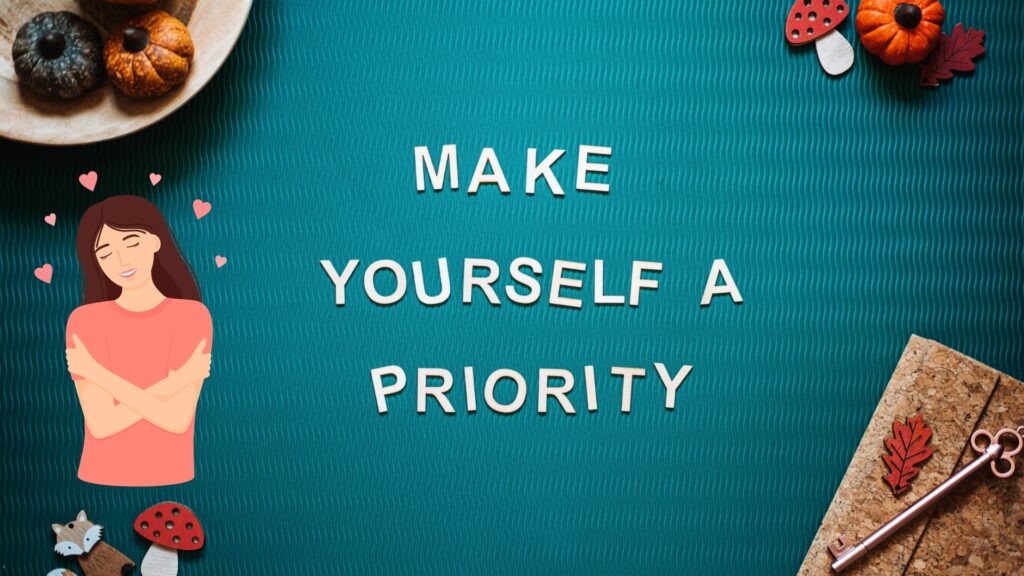Imagine waking up each day feeling calm, centered, and ready to face whatever comes your way. Picture a life where stress doesn’t linger and joy comes easily. Sounds like a dream, right? The secret to this fulfilling state of mind lies in daily practices that nurture your emotional health.
Introduction
Emotional health is the cornerstone of a fulfilling and balanced life. It influences how we think, feel, and behave, impacting our relationships, work, and overall happiness. Just like physical health, emotional well-being requires regular attention and care. Integrating simple daily practices into your routine can make a profound difference, helping you build resilience, reduce stress, and enhance your overall sense of well-being. In this blog, we’ll explore ten powerful habits that can transform your emotional health, allowing you to thrive in every aspect of your life.
1. Practice Gratitude
Gratitude is a powerful tool for boosting emotional health. It involves recognizing and appreciating the positive aspects of life, which can shift your focus away from negativity and foster a more optimistic outlook. Studies have shown that practicing gratitude can enhance mood, increase life satisfaction, and reduce symptoms of depression and anxiety. By regularly acknowledging what you’re thankful for, you train your brain to seek out and appreciate the good, creating a positive feedback loop that enhances overall well-being.

To incorporate gratitude into your daily routine, consider keeping a gratitude journal. Each day, write down three things you’re grateful for. These can be big or small—anything from a supportive friend to the beauty of a sunset. Over time, this practice can help you develop a more positive mindset and improve your emotional resilience.
2. Mindful Meditation
Mindful meditation is a practice that involves paying attention to the present moment without judgment. It helps you become more aware of your thoughts and feelings, allowing you to respond to them more effectively rather than getting overwhelmed. The benefits of mindful meditation are well-documented, including reduced stress, improved focus, and enhanced emotional regulation.

To start meditating, find a quiet space where you can sit comfortably. Close your eyes and focus on your breath, noticing each inhale and exhale. When your mind wanders, gently bring your attention back to your breath without judgment. Begin with just a few minutes a day and gradually increase the duration as you become more comfortable with the practice. Even a short daily meditation can make a significant difference in your emotional well-being.
3. Physical Exercise
Physical exercise is not only beneficial for your body but also has a profound impact on your emotional health. Regular physical activity releases endorphins, the body’s natural mood lifters, which can help reduce stress and anxiety. Exercise also promotes better sleep, boosts self-esteem, and improves cognitive function, all of which contribute to enhanced emotional well-being.

Incorporating exercise into your daily routine doesn’t have to be daunting. Simple activities like walking, stretching, or practicing yoga can be highly effective. Aim for at least 30 minutes of moderate exercise most days of the week. Not only will this improve your physical health, but it will also create a sense of accomplishment and help you manage your emotions more effectively.
4. Healthy Eating Habits
The food you eat has a direct impact on your emotional health. Proper nutrition fuels your brain, influences neurotransmitter function, and regulates your mood. Diets high in processed foods, sugars, and unhealthy fats can lead to mood swings, fatigue, and even symptoms of depression. Conversely, a balanced diet rich in whole foods can stabilize your mood and improve your emotional well-being.

To maintain a balanced diet, focus on incorporating a variety of fruits, vegetables, whole grains, lean proteins, and healthy fats into your meals. Specific mood-boosting foods include fatty fish (rich in omega-3 fatty acids), nuts and seeds, berries, dark chocolate, and fermented foods like yogurt and kimchi, which support gut health and, by extension, mental health. Staying hydrated and avoiding excessive caffeine and alcohol intake are also crucial for maintaining emotional balance.
5. Quality Sleep
Sleep is fundamental to emotional health. It allows your brain to process emotions, consolidate memories, and repair itself. Lack of sleep can lead to irritability, heightened stress, and increased vulnerability to mental health issues such as anxiety and depression. Ensuring you get enough quality sleep is essential for maintaining emotional stability.

To improve sleep quality, establish a consistent bedtime routine. Go to bed and wake up at the same time every day, even on weekends. Create a restful environment by keeping your bedroom cool, dark, and quiet, and limit screen time before bed to reduce blue light exposure. Engaging in relaxing activities like reading, taking a warm bath, or practicing gentle stretches can also signal to your body that it’s time to wind down.
6. Connect with Others
Social connections play a vital role in emotional health. Positive relationships provide support, reduce feelings of loneliness, and increase your sense of belonging. Interacting with others can help you navigate stress, offer new perspectives, and boost your overall happiness.

Make it a daily habit to connect with others, even in small ways. Call or text a friend, spend time with family, or join a group or community activity that interests you. Volunteering can also be a great way to meet new people and enhance your sense of purpose. Remember, quality is more important than quantity when it comes to social interactions, so focus on building meaningful relationships.
7. Practice Self-Compassion
Self-compassion involves treating yourself with the same kindness and understanding that you would offer to a friend. It’s about recognizing your imperfections and failures without harsh judgment and understanding that everyone experiences difficulties. Self-compassion can reduce negative self-talk, alleviate stress, and enhance emotional resilience.

Incorporate self-compassion into your daily routine through simple exercises. Start by practicing positive affirmations—remind yourself of your worth and strengths. When you make a mistake or face a setback, speak to yourself with kindness rather than criticism. Mindful self-compassion meditation, where you focus on accepting your thoughts and feelings without judgment, can also be a powerful tool. By nurturing a compassionate relationship with yourself, you can significantly boost your emotional well-being.
8. Limit Screen Time
Excessive screen time can have a detrimental impact on emotional health. It can lead to increased anxiety, depression, and feelings of isolation, especially when screen time replaces face-to-face interactions and physical activity. Constant exposure to social media can also contribute to a negative self-image and comparison anxiety.

To reduce screen time and be more mindful of digital usage, set specific limits on the time you spend on your devices. Designate “screen-free” times during your day, such as during meals or the first and last hour of your day. Use apps that track and limit your screen time, and prioritize in-person interactions over digital ones. Additionally, engage in activities that do not involve screens, such as reading a book, going for a walk, or practicing a hobby.
9. Engage in Creative Activities
Engaging in creative activities is a powerful way to boost emotional well-being. Creativity allows for self-expression, reduces stress, and provides a sense of accomplishment. Activities like drawing, writing, playing music, or crafting can help you process emotions, gain new perspectives, and enhance your overall happiness.

Incorporate daily creative practices into your routine to reap these benefits. Set aside time each day to engage in a creative activity you enjoy, whether it’s writing in a journal, sketching, playing an instrument, or even cooking a new recipe. The key is to focus on the process rather than the outcome, allowing yourself to fully immerse in the creative experience and express yourself freely.
10. Take Time for Yourself
Taking personal time is essential for maintaining emotional health. It allows you to recharge, reflect, and focus on your needs and well-being. Without regular self-care, you risk burnout, increased stress, and decreased emotional resilience.

Make self-care a daily priority by incorporating activities that nurture your mind and body. This could be as simple as reading a book, taking a relaxing bath, practicing yoga, or spending time in nature. The goal is to find activities that bring you joy and relaxation. By dedicating time each day to care for yourself, you can maintain a healthy balance and better manage the demands of daily life.
Conclusion
Integrating these daily practices into your routine can significantly boost your emotional health and overall well-being. Each habit, from practicing gratitude to taking personal time, plays a vital role in building emotional resilience, reducing stress, and enhancing your quality of life. The benefits of these practices compound over time, creating a more balanced, fulfilling, and joyful existence.
It’s important to remember that change doesn’t happen overnight. Start by incorporating one or two of these practices into your daily life and gradually build up. For example, you might begin with a gratitude journal and a short daily meditation. As these habits become part of your routine, add in more practices like regular physical exercise and mindful screen time management. The key is consistency and patience, allowing each practice to take root and flourish in your life.
We invite you to share your experiences and tips in the comments section below. What practices have you found most effective in boosting your emotional health? How have these habits made a difference in your daily life? Your insights and stories can inspire and support others on their journey towards better emotional well-being. Let’s create a community of support and encouragement, helping each other thrive emotionally.


